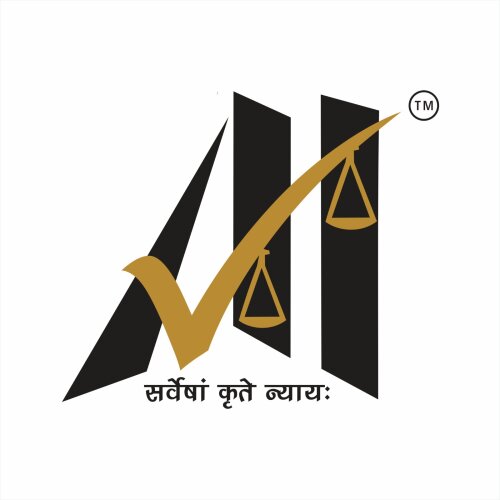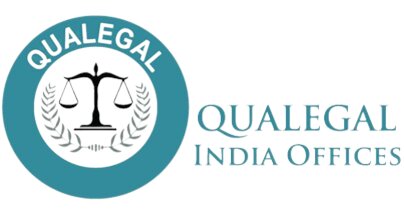Best Native People Lawyers in India
Share your needs with us, get contacted by law firms.
Free. Takes 2 min.
Or refine your search by selecting a city:
List of the best lawyers in India
About Native People Law in India
Native People in India, often referred to as Scheduled Tribes, are indigenous communities that have traditionally lived in specific regions and maintained distinct cultural patterns, beliefs, and practices. The Indian Constitution recognizes these communities, providing special measures for their socio-economic development, protection, and empowerment. Legal frameworks aim to safeguard their land rights, traditions, and autonomy, while promoting improved living standards.
Why You May Need a Lawyer
Legal challenges for Native People can arise in several situations, such as:
- Disputes over land ownership and forest rights.
- Issues regarding the implementation of government schemes meant for tribal welfare.
- Cultural heritage protection and the management of traditional knowledge.
- Discrimination or violation of civil rights.
- Consultation and consent in development projects (e.g., mining, infrastructure) impacting tribal areas.
Legal assistance can help navigate these complex issues, ensuring that rights are upheld and disputes are resolved fairly.
Local Laws Overview
Several legal provisions aim to protect and promote the rights of Native People in India:
- The Constitution of India: Articles like 46, 244, and 275 provide special protections and privileges to the Scheduled Tribes.
- Scheduled Tribes and Other Traditional Forest Dwellers (Recognition of Forest Rights) Act, 2006: Recognizes the rights of forest-dwelling communities to land and resources.
- Panchayats (Extension to Scheduled Areas) Act, 1996 (PESA): Empowers Gram Sabhas in Scheduled Areas to self-govern and protect their resources.
- Protection of Civil Rights Act, 1955: Aims to eradicate discrimination against Scheduled Castes and Scheduled Tribes.
- The Right to Fair Compensation and Transparency in Land Acquisition, Rehabilitation and Resettlement Act, 2013: Ensures fair compensation in land acquisition affecting tribal areas.
Frequently Asked Questions
What is the legal definition of Native People in India?
Native People, or Scheduled Tribes, are communities identified by the Indian Constitution, enjoying special legal and protective measures due to their distinct cultural, economic, and social status.
How are the rights of Native People protected under Indian law?
Laws such as the Forest Rights Act, PESA, and various constitutional provisions safeguard the land, culture, tradition, and governance rights of Native People.
What are Scheduled Areas?
Scheduled Areas are regions identified in certain states where the Native People predominantly reside, warranting distinctive administrative and governance arrangements to protect their rights.
What role does the Gram Sabha play in tribal areas?
Under PESA, the Gram Sabha holds significant authority over resources and governance, ensuring that development aligns with tribal customs and needs.
How does the Forest Rights Act benefit Native People?
The Act grants legal recognition to rights on land and resources that forest-dwelling communities have been using for generations, safeguarding their livelihoods.
Can Native People avail legal aid?
Yes, Native People can access free legal aid through District Legal Services Authorities and various non-profits focused on their rights and empowerment.
What are Fifth Schedule and Sixth Schedule areas?
Fifth Schedule applies to certain states and involves administrative mechanisms for tribal welfare, while the Sixth Schedule pertains to the autonomous district councils in northeastern states, allowing self-governance for tribal communities.
How does land acquisition for projects affect Native People?
Development projects often require land acquisition, impacting Native People. The 2013 Land Acquisition Act mandates fair compensation and necessary consents from affected communities.
What can Native People do if their rights are violated?
They can approach local authorities, legal aid services, and lawyers specializing in tribal law for assistance. Legal action can be taken through courts or grievance mechanisms.
Who oversees the implementation of tribal welfare schemes?
The Ministry of Tribal Affairs, along with state tribal development departments and local government bodies, oversees the implementation and monitoring of welfare schemes.
Additional Resources
For legal advice and support regarding Native People, consider reaching out to:
- Ministry of Tribal Affairs: Governmental authority working for tribal development.
- National Commission for Scheduled Tribes: A constitutional body safeguarding the interests of Native People.
- Tribal Research and Development Institutes: Institutions focused on research and policy recommendations for tribal welfare.
- Non-governmental organizations: Numerous NGOs work in India to protect the rights and promote the interests of Native People.
Next Steps
If you need legal assistance concerning Native People, consider the following steps:
- Identify the Issue: Clearly define your legal concern or need.
- Seek Local Counsel: Reach out to a lawyer specializing in tribal law or legal aid organizations in your area for initial consultation.
- Gather Documentation: Collect all relevant documents, evidence, and records related to your case or issue.
- Engage with Legal Aid Services: Utilize available free legal aid services for advice and representation if necessary.
- Advocate for Your Rights: Attend relevant meetings, discussions, and forums on tribal affairs to stay informed and proactive in protecting your rights.
Understanding and navigating the legal landscape for Native People in India can be complex, but with the right resources and guidance, effective legal recourse is achievable.
Lawzana helps you find the best lawyers and law firms in India through a curated and pre-screened list of qualified legal professionals. Our platform offers rankings and detailed profiles of attorneys and law firms, allowing you to compare based on practice areas, including Native People, experience, and client feedback.
Each profile includes a description of the firm's areas of practice, client reviews, team members and partners, year of establishment, spoken languages, office locations, contact information, social media presence, and any published articles or resources. Most firms on our platform speak English and are experienced in both local and international legal matters.
Get a quote from top-rated law firms in India — quickly, securely, and without unnecessary hassle.
Disclaimer:
The information provided on this page is for general informational purposes only and does not constitute legal advice. While we strive to ensure the accuracy and relevance of the content, legal information may change over time, and interpretations of the law can vary. You should always consult with a qualified legal professional for advice specific to your situation.
We disclaim all liability for actions taken or not taken based on the content of this page. If you believe any information is incorrect or outdated, please contact us, and we will review and update it where appropriate.
Browse native people law firms by city in India
Refine your search by selecting a city.
















